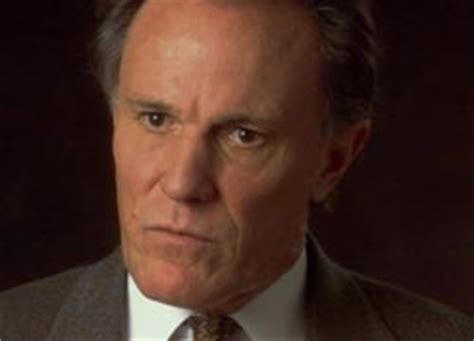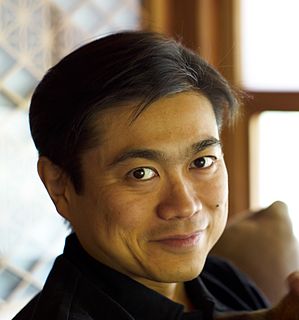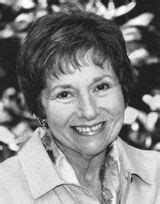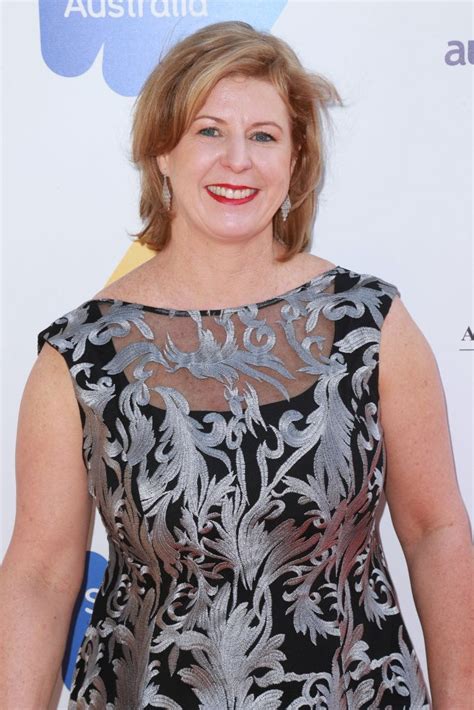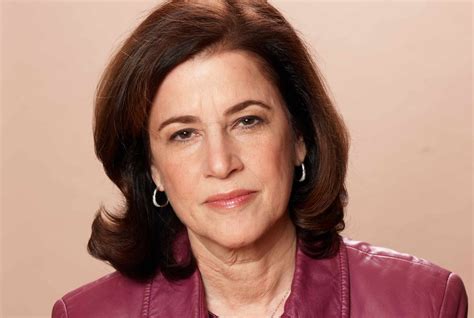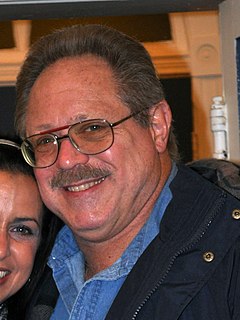A Quote by Frank Schaeffer
When I was a child, my parents taught a literal creation. By the time I was in my 20s they were accommodating evolution. In other words, less creed, more roll with changing ways of seeing. Maybe adapting is a better way to see this.
Related Quotes
If I had been a different sort of person, maybe less impressionable, less intense, less fearful, less utterly dependent upon the perceptions of others - maybe then I would not have bought the cultural party line that thinness is the be-all and end-all of goals. Maybe if my family had not been in utter chaos most of the time, maybe if my parents were a little better at dealing with their own lives maybe if I'd gotten help sooner, or if I'd gotten different help, maybe if I didn't so fiercely cherish my secret, or if I were not such a good liar, or were not quite so empty inside... maybe.
As parents, we can do a great deal to further this goal by helping our children develop alternative ways of knowing the world verbally/analytically and visually/spatially. During the crucial early years, parents can help to shape a child's life in such a way that words do not completely mask other kinds of reality. My most urgent suggestions to parents are concerned with the use of words, or rather, not using words.
The story of 'Mirror Mirror' is in many ways a story about evolution. It's about the evolution of a child into an adult. It's about the evolution of those dwarves into something a little less rock-like, a little more humanoid. It's about the evolution of history, too, from the darkness of the Middle Ages into the light of the Age of Reason.
The story of Mirror Mirror is in many ways a story about evolution. Its about the evolution of a child into an adult. Its about the evolution of those dwarves into something a little less rock-like, a little more humanoid. Its about the evolution of history, too, from the darkness of the Middle Ages into the light of the Age of Reason.
Over time, I have come to see the work of literature less as narrating the world than "seeing the world with words." From the moment he begins to use words like colors in a painting, a writer can begin to see how wondrous and surprising the world is, and he breaks the bones of language to find his own voice. For this he needs paper, a pen, and the optimism of a child looking at the world for the first time.
The mere existence of an additional child or children in the family could signify Less. Less time alone with parents. Less attention for hurts and disappointments. Less approval for accomplishments. . . . No wonder children struggle so fiercely to be first or best. No wonder they mobilize all their energy to have more or most. Or better still, all.
...it honestly didn't matter how we humans got to be the way we are, whether evolution or special creation was responsible. What mattered and mattered desperately was our future development. Were we going to go on destroying God's creation, fighting each other, hurting the other creatures of the His planet?
A two-year-old can be taught to curb his aggressions completely if the parents employ strong enough methods, but the achievement of such control at an early age may be bought at a price which few parents today would be willing to pay. The slow education for control demands much more parental time and patience at the beginning, but the child who learns control in this way will be the child who acquires healthy self-discipline later.
I believe in the theory of evolution, but I believe as well in the allegorical truth of creation theory. In other words, I believe that evolution, including the principle of natural selection, is one of the tools used by God to create mankind. Mankind is then a participant in the creation of the universe itself, so that we have a closed loop. I believe that there is a level on which science and religious metaphor are mutually compatible.
Most of the time, when I had hits as a soloist - maybe not so much with Simon & Garfunkel - I was surprised they were hits. I didn't know what the hits were. I never thought that 'Loves Me Like A Rock' was going to be a hit, or 'Mother And Child Reunion,' or '50 Ways To Leave Your Lover.' They didn't sound like what the hits sounded like at the time. Radio was more open to things that weren't exactly what every other hit was.
The switch has been built. Maybe you trust Barack Obama not to throw that switch, and maybe you trust George Bush not to throw that switch, but as we look towards the future, we see inequality becoming more and more acute. We're seeing more and more protests against cops and this kind of thing. We're also seeing more and more natural disasters. We're seeing more and more environmental insecurity.
My childhood was bittersweet in many ways. We moved around a lot. By the time I was 10, I had travelled thousands of miles, often on my own. My parents were like my friends, so it felt like I didn't really have parents at all. But in a crazy way that was very liberating. It forced me to be independent, maybe a leader, and certainly a survivor.
